Cargando...
Recursos educativos
-
Nivel educativo
-
Competencias
-
Tipología
-
Idioma
-
Tipo de medio
-
Tipo de actividad
-
Destinatarios
-
Tipo de audiencia
-
Creador
-
Bacteria and humans
EduBook Organización
- 2214 visitas
4.1. Industrial use of bacteria Many bacteria are beneficial because they are used in industrial processes. In the food industry, bacteria are used to make yoghurts and to turn wine into vinegar. They…
-
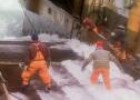
European Fisheries: A stategry for eliminating discards
EducaMadrid Organización
- 4356 visitas
On 28 March, the European Commission published a report outlining its strategy to bring the number of rejected fish or ‘discards’ – which represent a terrible waste of resources – down to…
-
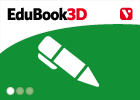
Investigate. Kidney stones
EduBook Organización
- 2030 visitas
Sometimes waste products from the blood may solidify in the kidneys. These solid concentrations are called kidney stones. Find out about kidney stones. Why are they produced? What can we do to avoid…
-
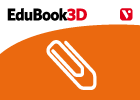
Did you know?
EduBook Organización
- 1963 visitas
Perspiring is really important. It is a mechanism for regulating our body temperature. When we sweat from the heat or doing exercise, the water that our skin excretes evaporates on contact with the air…
-
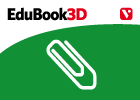
We are all responsible for the environment
EduBook Organización
- 1885 visitas
Everyone has the right to live in a healthy environment. We should also protect the environment for future generations. We can do this by developing the following habits: Using rechargeable batteries…
-
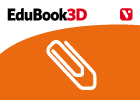
Did you know?
EduBook Organización
- 1712 visitas
When we want water, we just turn on the water tap and out it comes. But water is a very scarce resource. We should not waste or pollute water. Remember, more than 2 billion people do not have access to…
-
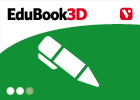
Look. Urban contrasts
EduBook Organización
- 1210 visitas
Look at the images and do the activities: Compare the two photos and identify the elements that are characteristic of each neighbourhood. Focus on the following: the quality and size of the buildings,…
-

Dossier 03
EduBook Organización
- 1208 visitas
Correct the false statements about exercice "Dossier 02". There are only a few kinds of different natural resources. Some people waste a lot of water. Pollution levels are higher in the country…
-

Dossier 02
EduBook Organización
- 950 visitas
Are these statements true or false? There are only a few kinds of different natural resources. Some people waste a lot of water. Pollution levels are higher in the country than in the city. Acid rain…
-

Consejos para usar el lenguaje no verbal
Perty de Olano Corberó Organización
- 7 lo usan
- 5601 visitas
1. Analiza la información que da Elsa Punset en este vídeo sobre el lenguaje no verbal: - Según ella, ¿para qué sirven las palabras y para qué los gestos? - ¿Por qué dice que los gestos son…
Te estamos redirigiendo a la ficha del libro...











